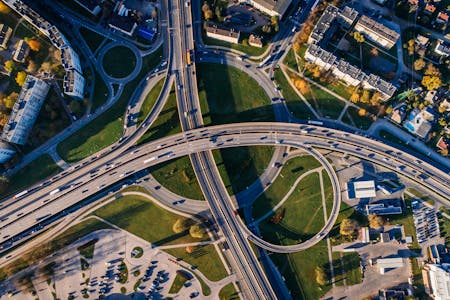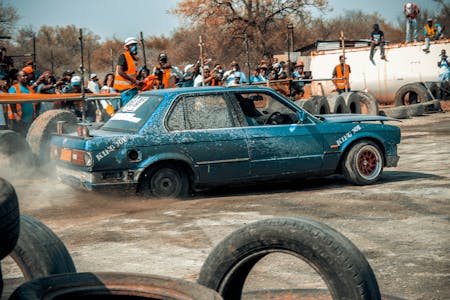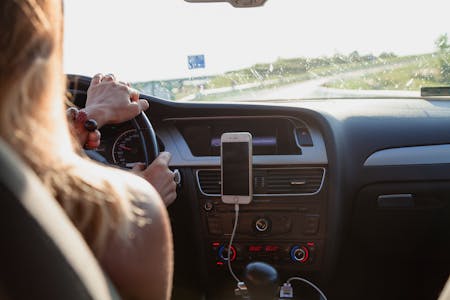

You do not have to go to court for a minor car accident if both parties settle through insurance. However, court may be required if there is a dispute over fault, unpaid damages, or injuries. Traffic citations from the accident may also require a court appearance.
Factoid About Car Accident Settlements
| Factoid | Statistic |
|---|---|
| Average settlement range in 2020 | $20,000 – $25,000 |
| Average injury settlement (Insurance Information Institute) | $20,235 |
| Average property damage settlement (Insurance Information Institute) | $4,711 |
| Average settlement (Martindale-Nolo survey) | $23,900 |
| Percentage of cases settled out of court | 98% |
| Average time to receive settlement | 10.7 months |
Understanding Minor Car Accidents
Minor car accidents are a common occurrence on the roads, often leading to confusion and stress among those involved.
This section will explore what constitutes a minor car accident, common causes behind them, and the types of damages that can arise, providing you with a clear understanding of these incidents and their implications.
Definition of a Minor Car Accident
A minor car accident typically involves slight vehicle damage and no serious injuries to the people involved.
Such incidents might include a fender bender in a parking lot or a low-speed collision at a stop sign, resulting primarily in cosmetic damage to vehicles, like scratches or small dents.
Common Causes of Minor Car Accidents
Minor car accidents are a frequent occurrence on roads worldwide, often resulting in inconvenience, minor injuries, and damage to vehicles. While these incidents are usually less severe than major accidents, understanding their common causes can help drivers take preventive measures to avoid them. Here’s a closer look at what typically leads to these minor mishaps:
- Distracted Driving
- Speeding
- Weather Conditions
- Tailgating
- Failure to Yield
- Poor Road Conditions
- Driving Under the Influence
- Faulty Vehicle Mechanics
Types of Damages in Minor Accidents
The damages from minor accidents usually include the cost of vehicle repairs and minor medical expenses for injuries like bruises or whiplash.
Despite the accidents being “minor,” repair costs and medical bills can accumulate, sometimes totaling thousands of dollars for what appears to be minimal damage.
Legal Requirements After a Minor Car Accident
Following a minor car accident, certain legal requirements must be met, from reporting the incident to law enforcement to exchanging information with the other party involved.
This section will cover these key steps, as well as the role of insurance companies, to ensure you are fully prepared to handle the aftermath of a minor car accident.
Reporting the Accident to Law Enforcement
You may be required by law in some states to report any car accident that involves physical injuries or property damage beyond a specified dollar amount, which can range from $500 to $2,500, depending on the jurisdiction.
Reporting the accident ensures there is an official record, which is vital for insurance claims and any potential legal proceedings.
Exchanging Information with the Other Party
It’s crucial to exchange contact and insurance information with the other driver immediately after the accident.
This fundamental step paves the way for resolving the incident through insurance channels, involving the sharing of names, addresses, driver’s license numbers, and insurance policy details.
The Role of Insurance Companies in Minor Accidents
Insurance companies play a significant role in the aftermath of a minor car accident. They are responsible for evaluating the accident to determine who is at fault and the amount of settlement.
This evaluation process considers police reports, statements from witnesses, and the extent of vehicle damage.
Insurance companies aim to settle claims out of court, negotiating with the other party’s insurer on your behalf.
When Is Court Involvement Necessary?
Deciding whether to take a minor car accident to court is a significant step. This section delves into the scenarios where legal action might be unavoidable.
Understanding these situations helps prepare you for the possibility of court involvement and informs you about the complexities of minor car accidents beyond the initial impact.
Disputes Over Fault
When the drivers involved in an accident cannot agree on who was at fault, court involvement might become necessary.
Fault is a crucial factor in determining who is responsible for damages. If there is no consensus, and significant property damage or injury is involved, one party might decide to resolve the matter through legal proceedings.
Injuries Resulting From the Accident
Even in minor accidents, injuries can occur. If injuries are more serious than initially thought, or if there is a disagreement over the compensation for these injuries, the injured party might file a lawsuit.
This is particularly true if the insurance companies fail to offer a settlement that covers medical expenses and other related costs.
Failure to Reach an Insurance Settlement
Sometimes, insurance companies cannot reach an agreement on the settlement amount.
If negotiations stall or if one party feels the settlement offered does not adequately cover the damages or injuries sustained, the next step might be to seek a legal resolution.
Going to court can provide a platform for fair compensation, especially when negotiation efforts have been exhausted.
Alternatives to Going to Court
Facing a court can seem like a daunting prospect after a minor car accident.
Fortunately, several alternatives exist that can resolve disputes without the need for a trial. These options not only save time and money but also reduce the emotional stress often associated with legal proceedings.
Exploring these alternatives can offer a more straightforward path to resolution.
Mediation and Arbitration
Mediation involves a neutral third party who helps both sides come to an agreement. It’s a flexible and confidential process, allowing both parties to express their views and work towards a mutually acceptable solution.
Arbitration, on the other hand, is more formal. An arbitrator listens to both sides before making a binding decision.
Both processes are generally quicker and less expensive than going to court.
Settlement Negotiations
Settlement negotiations occur directly between the parties involved, often with the assistance of their respective insurance companies and legal representatives. This process involves discussing the damages and agreeing on a compensation amount without the need for court intervention.
Settlement negotiations can be initiated at any time before or after a lawsuit is filed, offering a way to avoid the courtroom altogether.
Preparing for Court
If going to court becomes inevitable after a minor car accident, being well-prepared is crucial. This preparation can significantly influence the outcome, ensuring that your side of the story is accurately and effectively presented. Let’s explore the essential steps you should take when preparing for court.
Gathering Evidence and Documentation
Collecting all relevant evidence and documentation is a key step in preparing for court. This includes photos of the accident scene, medical reports if there were injuries, witness statements, and any communication with insurance companies.
Having a comprehensive collection of evidence supports your claims and helps establish the facts of the case.
Understanding the Legal Process
Facing the legal aftermath of a car accident can be daunting, especially for those unfamiliar with the process.
The journey from the initial accident to the resolution of legal matters involves several critical steps. Here’s a basic outline of what to expect:
- Reporting the Accident
- Gathering Evidence
- Filing a Claim
- Review by Insurance Companies
- Settlement Negotiation
- Filing a Lawsuit
- Discovery Process
- Mediation and Arbitration
- Trial
- Appeal
The Importance of Legal Representation
Having a legal professional by your side can make a significant difference in court.
A lawyer can provide valuable advice, represent your interests effectively, and navigate the complexities of the legal system. They can also handle negotiations and advocate for the best possible outcome on your behalf.
Need Help? Contact Goldenzweig Law
If you’re in Houston and dealing with the aftermath of a car wreck, don’t face it alone. Goldenzweig Law is here to help.
As your dedicated Houston car wreck lawyer, we’re committed to ensuring you receive the guidance and representation you deserve.
Call us at 713-903-3988 to navigate these challenging times with a team that cares about your recovery and compensation.
Navigation
Related Posts


What is a Non Dot Recordable Accident?
Continue Reading

